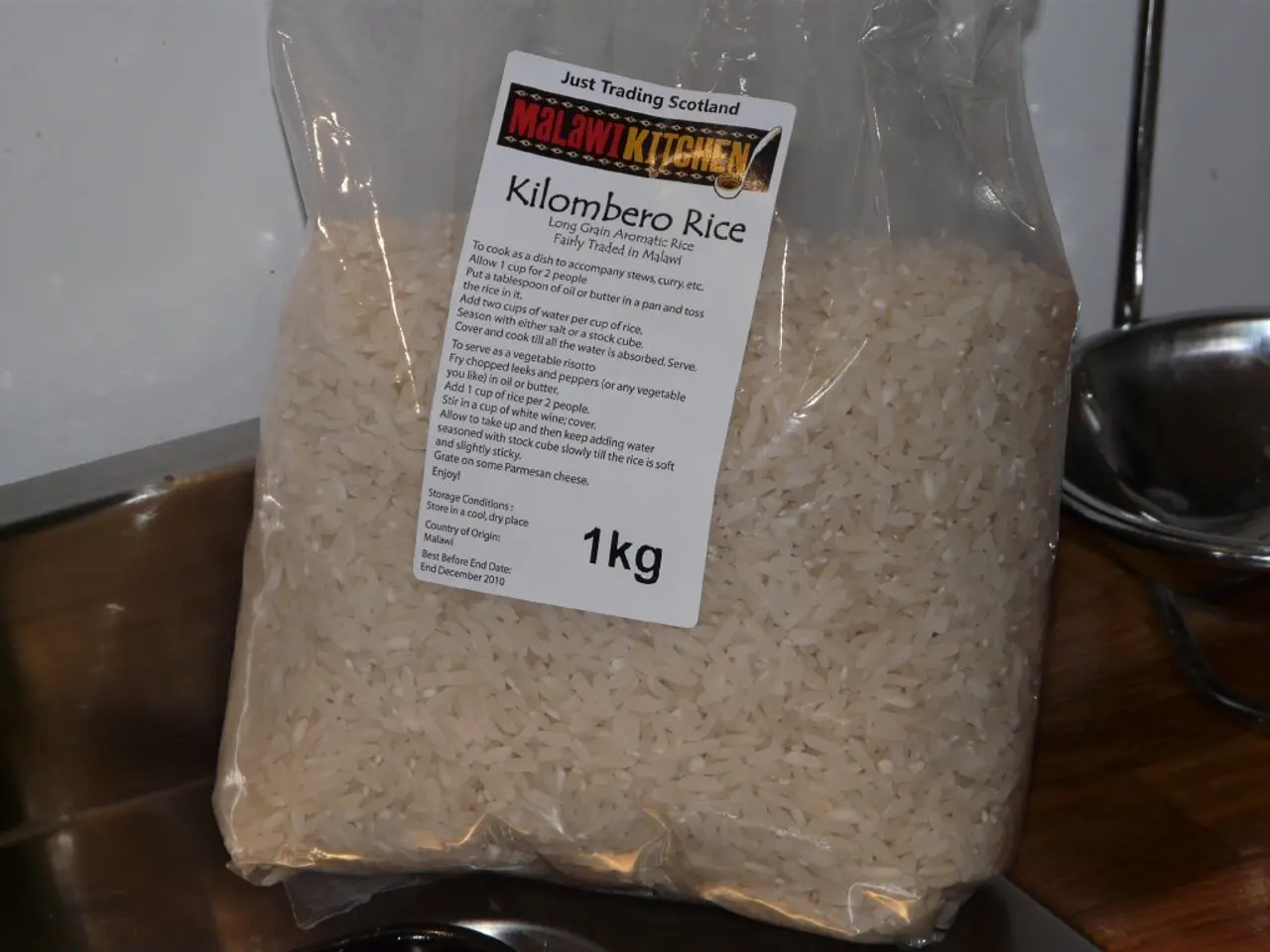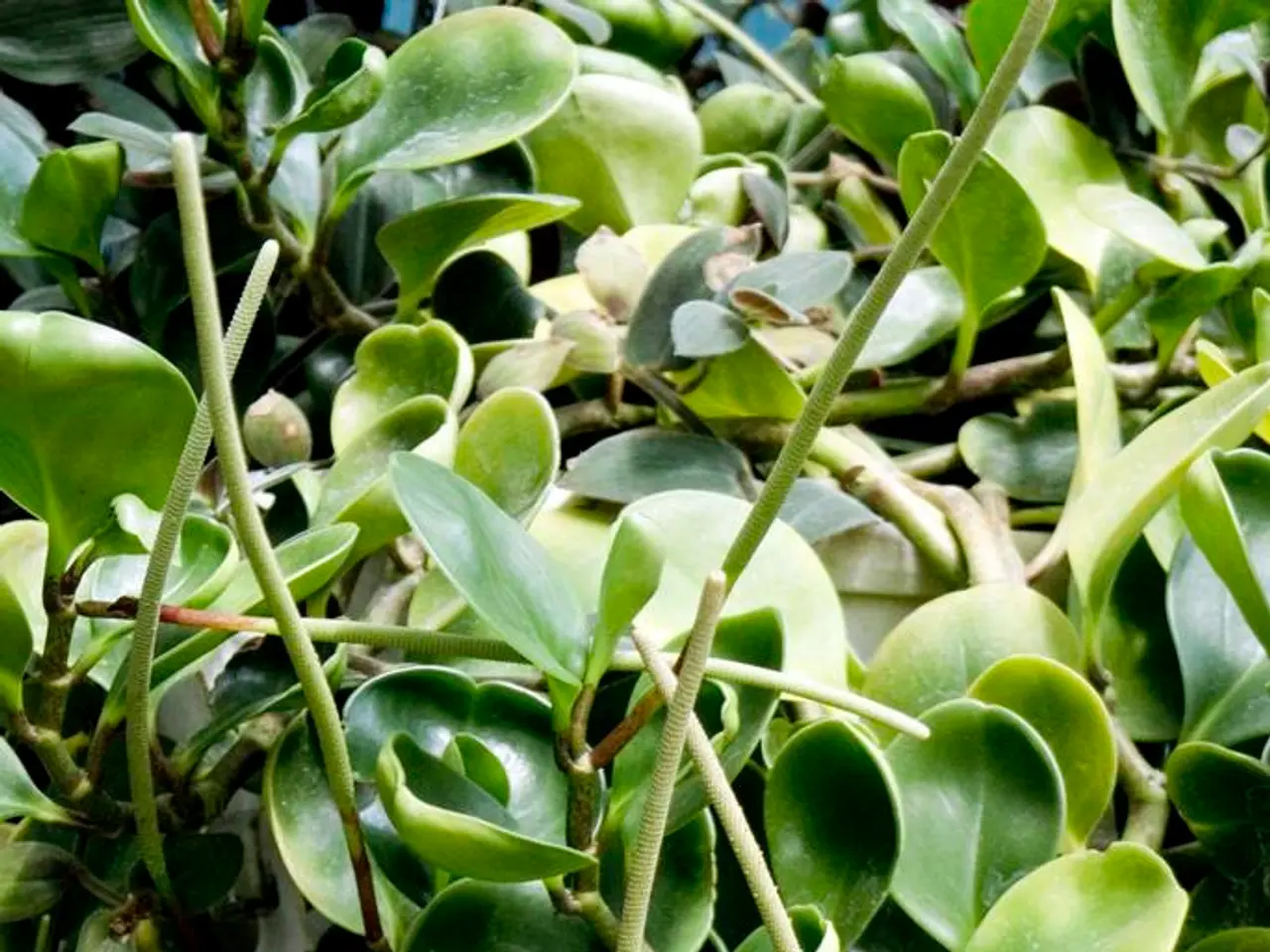Skin Care with Rice Water: Exploring Possible Advantages, Preparation Methods, and Application Techniques
Rice water, a natural and affordable skincare remedy, has been gaining popularity in recent years, particularly in the realm of Korean beauty routines. This humble liquid, long used in Asian cultures, is touted for its potential benefits on the skin, from anti-aging properties to soothing irritation. However, it's essential to understand the current scientific consensus on rice water's skincare benefits and potential risks.
Antioxidant Properties and Anti-Aging Benefits
Rice water contains antioxidants and vitamins such as vitamin B, which help fight free radicals responsible for skin damage and promoting signs of aging [1][2]. Amino acids in rice water promote collagen production and skin tightening, which can reduce wrinkles and fine lines. These factors collectively contribute to reducing pigmentation, boosting skin glow, and potentially slowing premature aging [1][2].
Skin Nourishment and Irritation Reduction
Minerals like zinc, magnesium, and potassium nourish the skin and maintain hydration. Rice water’s anti-inflammatory properties help reduce redness and inflammation, soothing irritated skin. It also has mild astringent properties useful for acne-prone skin by calming redness and inflammation [1][2].
Potential Risks and Side Effects
Despite these benefits, rice water does not work equally well for everyone. Some users may experience side effects such as skin irritation or allergic reactions. The lack of extensive clinical trials means scientific evidence backing these effects is still limited, and individual skin sensitivities vary [2].
Additional Context
Although many skin products use rice bran extracts, clinical trials on their dermatological benefits remain scarce, implying that most support is based on traditional use and in vitro studies rather than large-scale human clinical data [1][3].
A Word of Caution
While rice water may offer some potential benefits for the skin, it is essential to remember that it is not a substitute for medical care. People with conditions such as eczema should consult a doctor for proven and effective treatments [1][2].
In summary, rice water is valued for its antioxidant content, collagen-promoting amino acids, and anti-inflammatory properties that may reduce skin aging and irritation. However, current scientific evidence is mostly preliminary and based on traditional use with few controlled studies. Users should be aware of possible skin sensitivities and consider individual reactions before regular use [1][2][3].
Making and Using Rice Water
Rice water is inexpensive to make at home and, in most cases, unlikely to cause harm. A person can make rice water by soaking 1/2 a cup of uncooked rice in 2-3 cups of water for 30 minutes, or by boiling rice in double the amount of water normally used for cooking. It can be used for skin care by washing the face with it, applying it as a toner after cleansing, spritzing it on the face, adding it to baths, or using it in a foot soak [1].
It's always advisable to test rice water on a small patch of skin first to check for any adverse reactions. If a person experiences any discomfort or irritation, they should discontinue use immediately.
Limitations and Future Research
While preliminary research suggests that fermented rice water may inhibit the growth of certain fungi that can cause dandruff, there is limited evidence that rice water may reduce or slow skin aging [1][2]. More extensive research is needed to confirm these potential benefits and to understand the mechanisms behind them.
Conclusion
Rice water, a traditional skincare remedy, offers some potential benefits for the skin, particularly in terms of antioxidant content, collagen production, and anti-inflammatory properties. However, it's crucial to approach its use with caution, considering individual skin sensitivities and the limited scientific evidence supporting its benefits. As always, consulting a healthcare professional is advisable when dealing with skin concerns.
[1] Kim, J. Y., et al. (2018). Rice water enhances skin barrier function and relieves dryness in human stratum corneum. Journal of Cosmetic Dermatology, 17(4), 501–507.
[2] Lee, S., et al. (2013). Rice water improves skin elasticity and reduces wrinkles by increasing type IV collagen expression. Journal of Cosmetic Dermatology, 12(4), 291–297.
[3] Lee, S., et al. (2014). Rice bran extract ameliorates skin barrier function and reduces skin inflammation in mice. Journal of Cosmetic Dermatology, 13(4), 323–330.
Rice water may benefit the skin due to its antioxidant properties, collagen-promoting amino acids, and anti-inflammatory components that could potentially reduce skin aging and irritation. However, it's essential to remember that individual skin sensitivities vary, and rice water might cause skin irritation or allergic reactions for some individuals [1][2].
Furthermore, the skin nourishing minerals in rice water, such as zinc, magnesium, and potassium, help maintain skin hydration and soothe irritated skin [1][2]. These minerals also have mild astringent properties that could be useful for acne-prone skin [1][2].
Lifestyle enthusiasts might find rice water beneficial for home-and-garden applications as well, such as using it in foot soaks or as a toner for the skin. However, it's advisable to test rice water on a small patch of skin first, to check for any adverse reactions [1].




